少子高齢化が深刻化する日本。
医療技術の発達や豊食のおかげもあってか、日本人の平均寿命は男性女性ともに80歳をこえている。にもかかわらず、健康寿命は72~75歳。
最長で約15年も不健康な状態、場合によっては介護が必要な時期がつづくことになる。
第二次世界大戦前は日本も大家族で、親・子・孫の三世代が一つ屋根の下に暮らし、親が子の子育てをサポートしたり、子が老いた親の面倒をみるのは普通のことだった。
日本には「年寄りは家の宝」ということわざがある
経験豊かな老人は何でも知っているので、宝物のような存在だ・・・という意見である。
このことわざは、大家族で暮らしていた頃の、暮らしの知恵から生まれたものだろう。
現在の日本は核家族化が進み、その血縁の絆が希薄になってきている。
筆者のイスラム教徒の友人より、友人のご主人の親の介護について話を聞いた。
ご主人の兄弟が病気の母親を介護していたが、長きにわたる介護疲れで身心不調になり、施設に預ける話がもちあがった。
友人はご主人を説得して、自分達で介護することを決め、その最後を看取ったそうだ。
友人に「日本人は老人に冷たい」と言われた。
決して日本人がすべてが老人に冷たいわけではない。
施設に預けるという意見も、やむにやまれぬ気持ちから出た意見だと思う。
老々介護、孤独な介護はつらいものだ。
その点、イスラム圏はまだまだ大家族で暮らすスタイルが多い。
古き良き時代の日本の姿がそこにある。
そして、イスラムの教えの中にも繰り返し「老人を大切に」と記載されている。
「両親にはやさしくしなさい。親戚・孤児・貧民・友人・旅人・奴隷たちにも」
クルアーン4章36節
預言者ムハンマドも「近親者と連絡を絶つものは天国にはいけない」と説いている。
日本にも目上の者を敬う教えはたくさんある。
しかしながら、忙殺される日々の中で、互いの縁に感謝を忘れているのかもしれない。
「日本人は冷たい」と一括りに決めないでほしい。
それまで一人で介護をしていた兄弟の想いや、日本の良い教えもたくさんある。
どちらが良い悪いという優越をつけるのではなく、良い所は素直に見習い、イスラムと日本の相互理解につなげたいものである。

Japan is experiencing a declining birthrate and an aging population.
Thanks in part to the development of medical technology and a bountiful diet, the average life expectancy for both men and women in Japan is now over 80 years. Despite this, healthy life expectancy is 72-75 years.
This means that a person can be in poor health for up to 15 years and, in some cases, require nursing care.
Before World War II, Japan also had large families, with three generations of parents, children, and grandchildren living under one roof, and it was common for parents to support their children in raising them and for children to take care of their aging parents.
There is a saying in Japan, “An old person is the treasure of the house.
The opinion is that experienced old people are like treasures because they know everything….
This proverb probably originated from the wisdom of life when people lived in large families.
Today in Japan, the nuclear family has become the norm, and the bonds of kinship have become less and less strong.
A Muslim friend of mine told me about caring for her husband’s parents.
The husband’s sibling had been taking care of their sick mother, but after a long period of caregiving exhaustion, the sibling became mentally and physically ill, and there was talk of placing the mother in an institution.
My friend persuaded her husband to take care of her mother by himself and took care of her at the end of her life.
My friend said to me, “Japanese people are cold to old people.
By no means are all Japanese people cold to the elderly.
I think that the opinion to leave the elderly in the care of an institution is also an opinion that came out of an unavoidable feeling.
It is hard to care for the aged and to be alone.
In this respect, many Islamic countries still have large families.
This is the image of Japan in the good old days.
In Islamic teachings, it is repeatedly stated, “Be kind to the elderly.
Be kind to your parents. Be kind to relatives, orphans, the poor, friends, travelers, and slaves.”
Qur’an 4:36.
Prophet Muhammad (pbuh) also taught, “Whoever breaks contact with his near relatives will not enter Paradise.
There are many teachings about respecting superiors in Japan.
However, in the midst of our busy lives, we may be forgetting to be grateful for the relationships we have with each other.
Please don’t assume that the Japanese are cold.
There are many good teachings in Japan and the thoughts of the brothers who had been taking care of their family alone until then.
Rather than assigning superiority or inferiority to one over the other, we should honestly learn from the good points and try to build mutual understanding between Islam and Japan.



